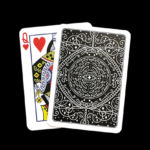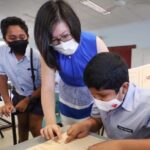
TOK is one of the foundational requirements of the International Baccalaureate, the curriculum intended to develop a student’s critical thinking and help them understand how knowledge is created and verified. The acquisition of this skill goes a long way in improving their results as well as equipping them with a basis for ever-enduring and effective learning as well as decision-making.
This blog is dedicated to discussing the purpose of TOK and offering tips to assist best international schools students thrive in this enriching course.
Key Strategies for Building Critical Thinking Skills
Here are actionable strategies for enhancing critical thinking in IB students or the IB learner profilesthrough the TOK framework.
Encouraging Analytical Thinking
Pose Open-Ended Questions: Begin all conversations with questions that create awareness and force people to look beyond the surface of things.
Introduce Diverse Case Studies: Give examples of how knowledge claims are evaluated in other fields to make a point of how different the process is.
Encourage Debate: Structured debates enable students to examine different opposing opinions about a topic and sharpen concepts on how to approach arguments.
Thus promoting the ability to evaluate the reliability of information – a very important skill in today’s information warfare.
Supporting Open-Mindedness
Look for IB curriculum schools in Bangalore that support open-mindedness.
Encouraging Perspective-Taking: Provide assignments that call for the students to present their case from different positions that they may not support.
Exploring Cultural Contexts: Explain how culture affects the content of knowledge and ethical decision making processes.
Promoting Empathy: There are many suggestions how to expand knowledge about other people and their perspectives, for instance, through games or stories.
Students learn to appreciate the differences in the opinion of others which makes the academic discussions of the students healthier.
Enhancing Research and Communication Skills
Research and communication are vital for articulating well-reasoned arguments in TOK for IB learner profile attributes.
Teach Source Evaluation: Explain to learners how they can measure the credibility and partisanship of the sources.
Promote Collaborative Projects: Group research assignments presuppose the students’ active cooperation and knowledge sharing.
Practice Argumentative Writing: Challenged students to write essays that are supported by evidence but also have sound arguments.
The skills include research and communication skills which enable the students to be relevant in academic and other discourse.
Inspiring Curiosity and Reflection
Encourage Inquiry-Based Learning: Invite students to select subject matters that they are interested in studying.
Create a Journal Culture: Reflection journals allow the students to record their changing ideas.
Introduce Philosophical Dialogues: Explain some of the timeless philosophical issues in order to stimulate people’s desire to learn.
When students take curiosity and reflection, they enhance their learning attitude, and become lifelong learners.
Offering Clear Guidance, and Creating a Supportive Learning Space
Look for Bangalore international schoolsthat focus on supportive learning spaces.
Provide Clear Frameworks: Provide frameworks for an assignment that includes items such as an essay template as well as a grading criterion.
Encourage Active Participation: Encourage the participants to engage in discussions where everyone, including students can share their ideas.
Celebrate Mistakes as Learning Opportunities: Review the rationale that learning is not possible without making mistakes.
Explicit support means that a student can try out his/her ideas and develop confidence in the thinking skills he/she possesses.
Conclusion
The Theory of Knowledge is not just a classroom subject; it is an educational process through which the IB student acquires the means to analyze the world they live in. OWIS Bangalore is one of the best IB schools in India, so get your child’s admission today.






